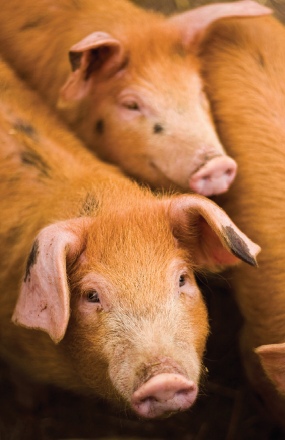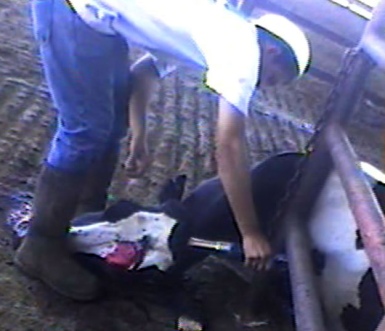
Pigs, cows, chickens and other animals used for food might be the hardest working Americans. Most of them are on the job every day and don’t get time off or holidays. / Photo: USDA
Today, while the U.S.A. pays tribute to “the social and economic achievements of American workers,” as this federal holiday is described by the United States Department of Labor, there might be some irony in the fact that many citizens will celebrate the occasion by eating such items as hot dogs, hamburgers, chicken fajitas, and egg salad sandwiches.
Those Labor Day barbecue and picnic foods come from animals who, in light of the following quotes, might be considered to be the hardest-working Americans ever. Continue reading



